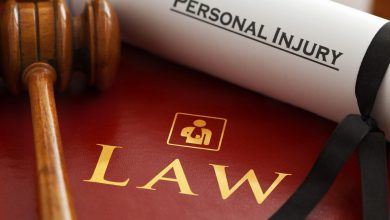5 Things To Know About Liability Waivers

A Liability Waivers is a document that you sign, stating that you understand the risks involved in a particular activity and absolving the venue or organizer from any legal responsibility for injury that might occur within the stipulated duration. It’s also referred to as a ‘hold harmless’ agreement.
For example, when you sign a children personal injury waiver, you agree not to hold the organizer or sponsor liable if something goes wrong during the event, such as if your child gets hurt playing baseball. Some common activities requiring participants to sign liability waivers include skydiving, scuba diving, whitewater rafting, mountain biking, paintball, bungee jumping, and rock climbing.
Here are five things to know about liability waivers:
Table of Contents
Companies Use Them For Protection
Liability waivers can shield organizations from certain types of legal responsibility. For example, if you’re signing up for a class at the gym and they have a liability waiver, it means that they’re not responsible (legally speaking) if something happens to you while in their care.
Liability waivers are a standard tool used by companies to protect themselves against lawsuits. Companies that offer sports or other physical activities, such as rock climbing, often require participants to sign liability waivers.
However. such waivers can also be used in non-physical activities. For example, if you volunteer at a community center and they ask you to sign a liability waiver, they’re not legally responsible for any injuries or incidents that may occur while you’re volunteering.
Liability Waivers Are Not Enforceable In All Cases
In some cases, liability waivers aren’t enforceable. If the activity is inherently dangerous and you’re injured while participating in it—as courts have seen many times with outdoor sports, like skiing and horseback riding—then your injury may be too apparent for anyone to argue that you waived your right to sue. For instance, if you get hurt while riding a rollercoaster at an amusement park, it may be difficult for the park to prove that you knew about the dangers of rollercoasters and, therefore, waive your right to sue.
Moreover, liability waivers aren’t enforceable in all states. The laws vary from state to state, with some allowing liability waivers and others not. For instance, in Texas, liability waivers are enforceable, while they’re not in Louisiana. Therefore, your waiver won’t be valid if you live in a state that doesn’t allow liability waivers.
Liability Waivers Can Be Invalidated
Liability waivers can be invalidated by misrepresentation, fraud, or duress.
A misrepresentation is when the person signing the waiver is led to believe something that isn’t true about the activity. For example, if someone tells a participant that an activity is safe for someone diagnosed with a heart condition, even though it isn’t, this could be considered a misrepresentation. The said participant could seek the help of a personal injury lawyer in such cases.
Liability waivers could be invalidated by fraud if the person signing the waiver was deceived into doing so. For example, if someone is told that a waiver is required to participate in an activity, although it isn’t, this could be considered fraud.
Liability waivers can be invalidated by duress if someone is forced or threatened into signing one against their will.
More so, one of the most important things to know about is that they can be invalidated if they’re against public policy. This is applicable if the waiver violates state or federal law. For example, a business required its customers to sign a waiver that said they couldn’t sue over any injuries caused by a defective product. This could be considered against public policy because the law requires companies to provide safe products.
Ultimately, waivers can also be invalidated if they’re unconscionable or one-sided.
Minors Cannot Sign Liability Waivers
Generally, minors can’t sign, If you are under 18, you may not be able to sign a liability waiver. In many states, minors can’t legally sign waivers because they don’t have the legal capacity to decide for themselves. You’ll probably need your parent’s or guardian’s permission before signing any liability waiver. If a minor has a parent or guardian present who gives consent for the minor to sign the waiver, then that’s the time the waiver would be considered legal.
Liability Waivers Do Not Cover Gross Negligence
Gross negligence is defined as ‘willful and wanton disregard of another’s safety or property.’ It’s more than ordinary negligence, defined as failing to exercise ordinary care. For example, if a park owner fails to remove hazardous objects from the premises and an injury results from this, it’d be considered gross negligence. To prove gross negligence, you must show that the other party had knowledge of a dangerous condition and took no action to prevent it from causing harm.
Conclusion
It’s up to you whether or not to sign a waiver. However, make sure that if you decide to sign one, you understand what it means before taking action. If something unfortunate happens after, you can always consult an attorney.
Visit for more articles: forbesblog.org



